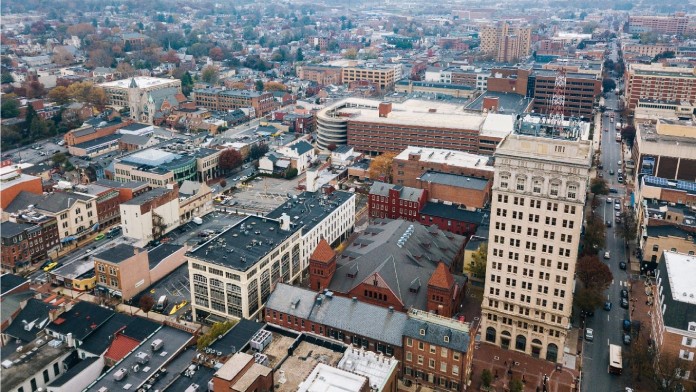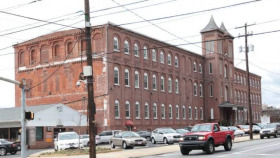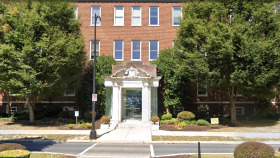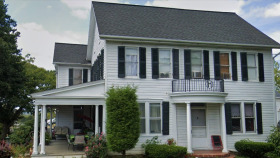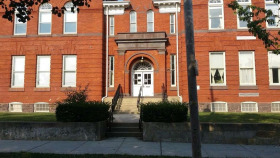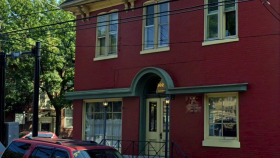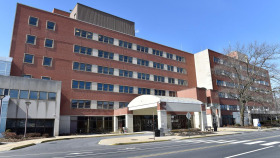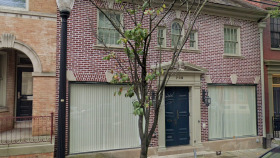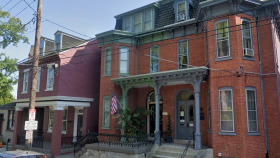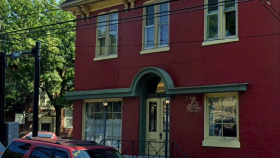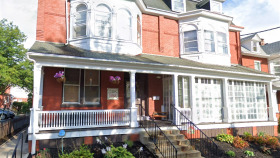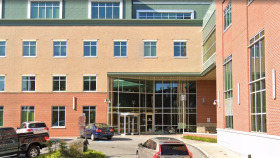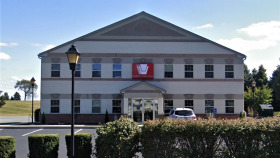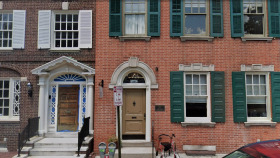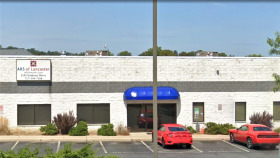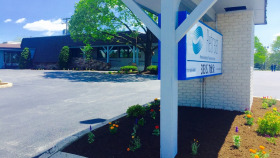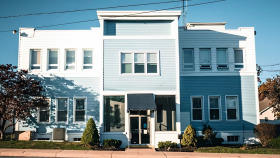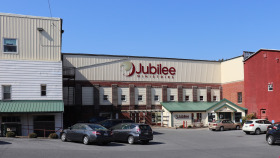Substance Abuse and Overdose Statistics in Lancaster, PA
Substance abuse reports compiled by the CDC and the Pennsylvania Department of Health highlight the following drug- and alcohol-use statistics for the city of Lancaster and Lancaster County:1, 3, 4, 5
In 2021, nearly 92% of overdose deaths in Lancaster County involved opioids, roughly 22% involved stimulants, and nearly 5% involved benzodiazepines.
Of all Lancaster County’s opioid-related deaths in 2021, 85% involved fentanyl.
From 2017 to 2021, opioid-involved fatalities in Lancaster County rose by 23%.
Levels of Care for Rehabs in Pennsylvania
Several levels of substance abuse care are available to effectively meet each Pennsylvanian’s recovery needs.
Alcohol and Drug Detoxification
Detox is the process of safely removing drugs or alcohol from your system. This occurs in a supervised setting, such as a hospital or inpatient rehab, so professionals can comfortably manage your withdrawal symptoms.
Inpatient Care
Residential or inpatient treatment involves living at a rehab facility under 24/7 supervision and care. Treatment services usually include individual and group therapy, nutritional counseling, experiential therapies, and medication.
Partial Hospitalization Programs (PHPs)
PHPs allow you to live at home while receiving addiction treatment at a hospital. Treatment methods may be similar to inpatient rehab, but you can return home during non-treatment hours.
Intensive Outpatient Programs (IOPs)
A step down from a PHP, IOPs allow you to attend a few hours of counseling each week, spread out over several days. You can spend the rest of your time at home, working, or fulfilling other obligations.
Standard Outpatient
As the least intensive treatment option, standard outpatient care involves just one to two hours of treatment per week. Because it has the least oversight and supervision, this level of treatment is typically appropriate for highly motivated people who have a strong support system.
Relapse Prevention
Relapse Prevention, also known as aftercare, begins when you complete a Pennsylvania rehab program. It includes ongoing support and encouragement through 12-step groups, non-12-step groups like SMART Recovery, ongoing therapy, sober living homes, and more. Aftercare is an important part of relapse prevention.
How to Pay for Addiction Treatment in Lancaster, Pennsylvania
Private Insurance
Insurance providers must cover substance abuse and mental health treatment services to some extent. However, specific coverage varies by plan, so Pennsylvania residents must contact their providers to confirm how much and which treatments are covered by their plan.
Pennsylvania Medicaid
Pennsylvania’s Medicaid program, Medical Assistance (MA), provides health insurance to low-income residents. It covers treatment services like inpatient drug rehab and outpatient substance abuse treatment. To qualify, residents typically are required to provide proof of income. Additionally, to use MA to pay for rehab, the facility must accept MA as a method of payment.
Pennsylvania Medicare
Pennsylvania Medicare is a federal program providing healthcare coverage to residents over the age of 65 as well as those with certain health conditions or disabilities. Pennsylvanians can use Medicare to cover the cost of drug addiction treatment services, including rehab. However, not all rehabs accept Medicare insurance.
TRICARE in Pennsylvania
Pennsylvania TRICARE (East region) is a government program that provides health insurance coverage for military personnel, veterans, and their families. TRICARE coverage includes addiction treatment services; however, specific coverage varies by plan.
Sliding Scale Rehabs
Sliding scale rehabs charge only what a resident can reasonably afford to pay, based on their income. To qualify for a sliding scale rehab in Pennsylvania, residents must provide proof of income.
IHS-Funded Drug Rehabs
Drug rehabs funded by the Indian Health Service (IHS) provide free addiction treatment to Alaskan Natives and Native Americans.

Traveling to and Within Lancaster, PA
Whether you’re traveling to Lancaster to visit a loved one in long-term treatment or coming to the city to enroll in a local rehab center, these travel tips may be useful:
- You can fly into Lancaster Airport (LNS), which is just six miles north of downtown Lancaster. If you’d prefer a larger airport with more flight options, Harrisburg International Airport is about 45 minutes southeast of Lancaster by car.
- Lancaster offers quick access to several major transit routes, including U.S. Routes 30 and 222, Interstates 83 and 76, and State Routes 23, 72, 272, and 501.
- Lancaster has dozens of national-chain and non-branded lodging establishments that should suit virtually any budget.
- Downtown Lancaster is highly walkable and home to several gorgeous murals, locally owned shops and eateries, and the oldest continuously-operating farmers market in the U.S., Lancaster Central Market.
- Amtrak has a station in downtown Lancaster and provides daily service around Lancaster County and to Pittsburgh, Philadelphia, New York, and Washington, D.C.
- Lancaster is served by Red Rose Transit Authority, which operates fixed-route bus service throughout the city and to nearby areas. The city is also served by Friendly Transportation, which offers 24/7 private ride service via town car, van, and bus.
- Lancaster has 16 public parks where you can take advantage of walking and biking trails and view public works of art created by local residents.
- Popular local attractions include the African American Heritage Walking Tour, Heritage Press Museum, Historic Rock Ford, The Amish Farm and House, Dutch Wonderland, Fulton Theatre, American Music Theatre, and the Wolf Sanctuary of Pennsylvania.
Pennsylvania Alcohol and Drug Laws
Pennsylvania lawmakers have enacted the following policies related to substance use, treatment, and overdoses:1,2,3,4
Law Enforcement Treatment Initiative: LETI allows residents of participating Pennsylvania counties to contact law enforcement for help in identifying a rehab facility—without the threat of arrest. The initiative also allows law enforcement officers to guide individuals to treatment rather than divert them into the criminal justice system.
Good Samaritan Law: This law offers legal protection for certain drug crimes to Pennsylvania residents who seek medical attention or administer naloxone during a drug-related overdose. The law is designed to encourage Pennsylvanians to call for help by removing the threat of arrest for drug-related crimes. To receive immunity, Pennsylvanians must report the incident to emergency officials, give authorities identifying information, and stay with the overdose patient until first responders arrive. The law does not provide protection for crimes of delivery or distribution of drugs.
Naloxone Standing Order: This order allows pharmacists to dispense naloxone without a prescription.
Marijuana Laws: In Pennsylvania, marijuana is illegal for recreational use. Residents can apply for a medical marijuana card if they have a qualifying medical condition. Qualified patients can carry a 30-day supply of marijuana in a non-smokable form. Illegal possession of marijuana can lead to a 30-day imprisonment and a $500 fine. If the illegal possession is for more than 30 grams of marijuana, the penalties can include up to a year in prison and a $5,000 fine.
Resources
- Commonwealth of Pennsylvania. (2022). Opioid Data Dashboard, Annual Estimated Unique Individuals with Drug Use Disorder.
- Substance Abuse and Mental Health Services Administration. (n.d.). FindTreatment.gov.
- Centers for Disease Control and Prevention, National Center for Health Statistics. CDC Wonder Online Database. (2021). Underlying Cause of Death, 1999-2020 Results, Deaths occurring through 2020.
- Centers for Disease Control and Prevention. (2022). PLACES: Local Data for Better Health, Place Data 2022 Release.
- Pennsylvania Office of Drug Surveillance and Misuse Prevention. (2022, October 21). Fatal and Non-Fatal Drug Overdose Surveillance, Interactive Data Report.

